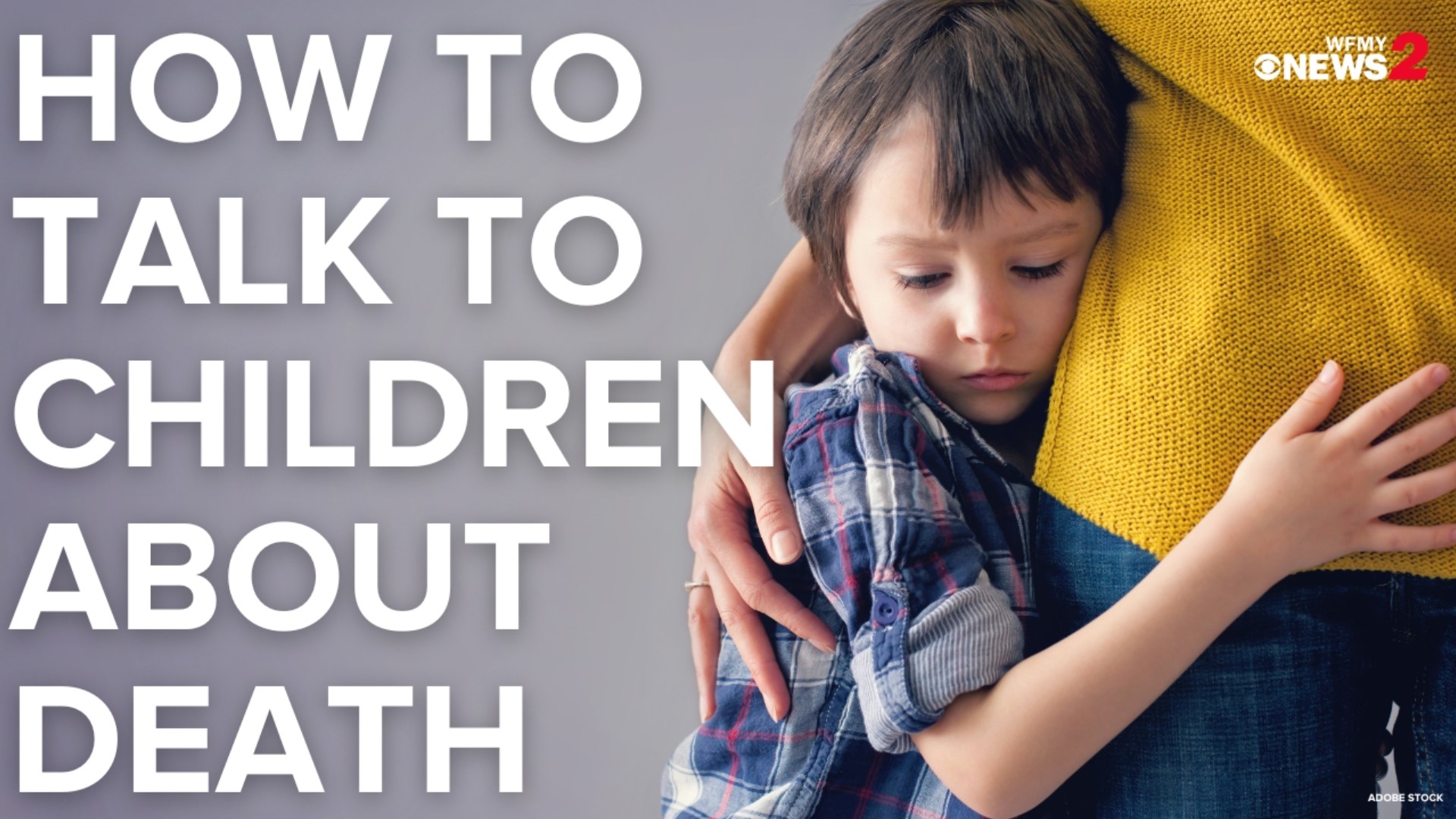GREENSBORO, N.C. — Here are suggestions on ways to navigate conversations with your children about death.
No parent wants to scare their children in an already scary world. The harsh reality of life is that untimely deaths happen, and we can't protect our children from every possible frightening thing that might happen.
If you, as the parent, don't talk to your children about uncomfortable topics, they'll get the information from other sources, whether it's friends, parents, teachers, etc. You won't be able to control the narrative. It's natural for children to want to understand and to ask questions.
Tell your kids that you have a sad thing to discuss to start the conversation. Briefly explain what happened to their friend and their friend's family depending on their developmental level and what you want them to know. For younger kids, simplicity with little details is best.
When you explain death, it's best to let kids know it's permanent. When the body stops working completely, it can't breathe, eat, or wake up. It's forever. Sometimes, young kids think that death is similar to sleep, and after some time that, the person will wake up from death.
Children, like adults, can experience various emotions, from sadness to anger to confusion. Give your children space to grieve in their way. Expect many questions, repeated questions.
It's a difficult concept to understand. It might take time for younger children to realize that their friend isn't coming back. It's ok to share your emotions with your children. It won't make it worse for them. You'll be modeling a sad part of life. Your kids will look to you for guidance during difficult times.
Share your thoughts on my Facebook page: Blanca Cobb – Body Language Expert. Write a message on my timeline, and I'll get back to you. While you're on my page, I'd appreciate it if you give my page a "like.

